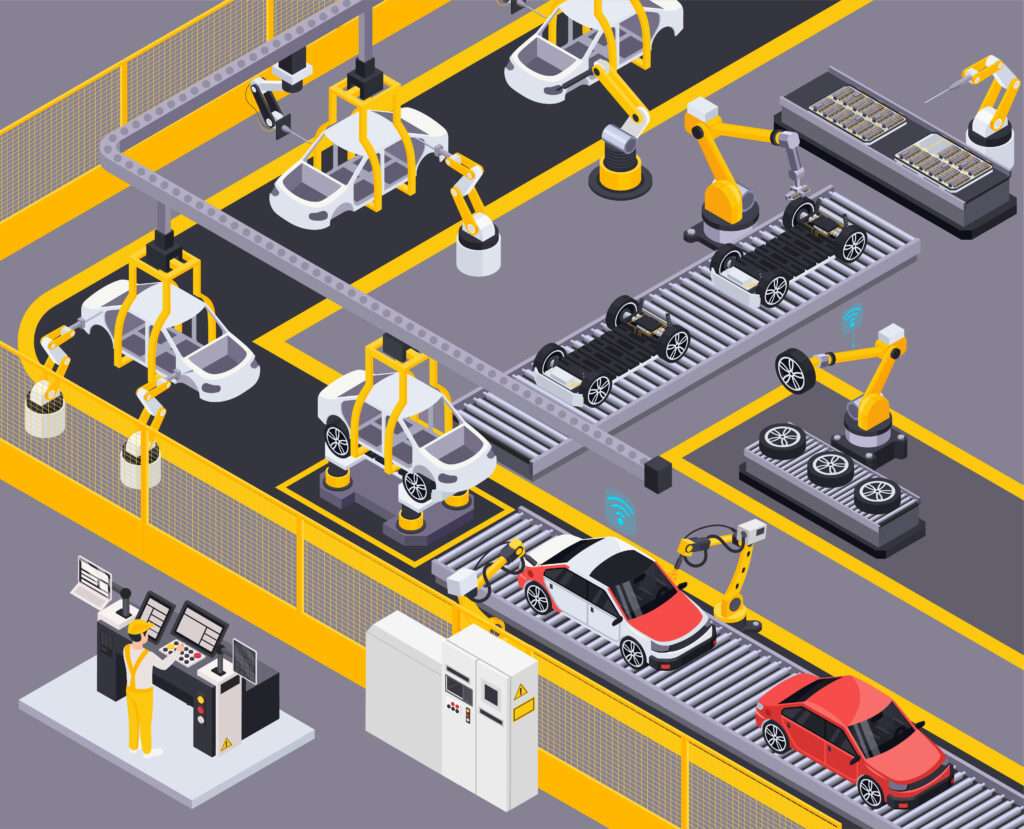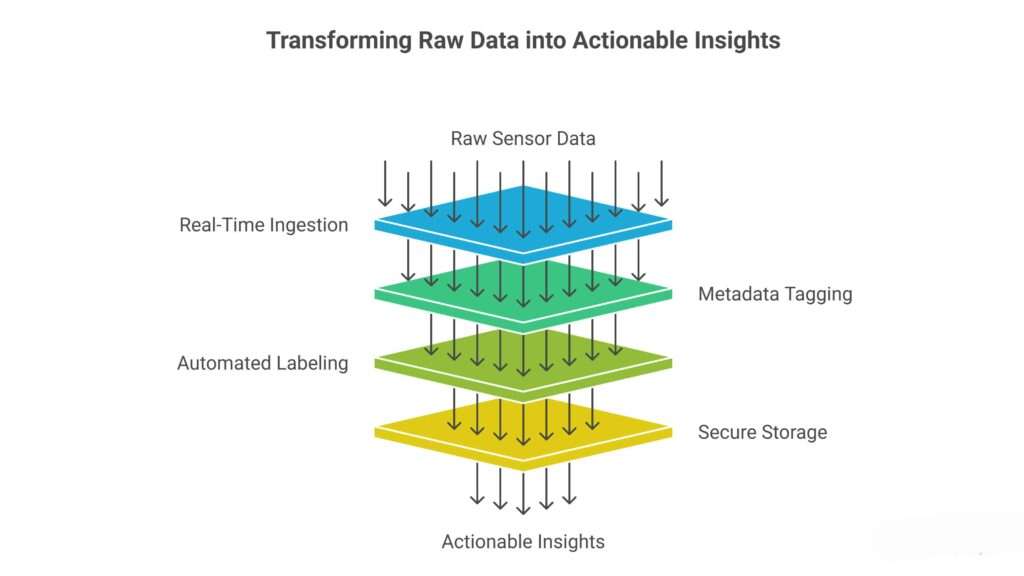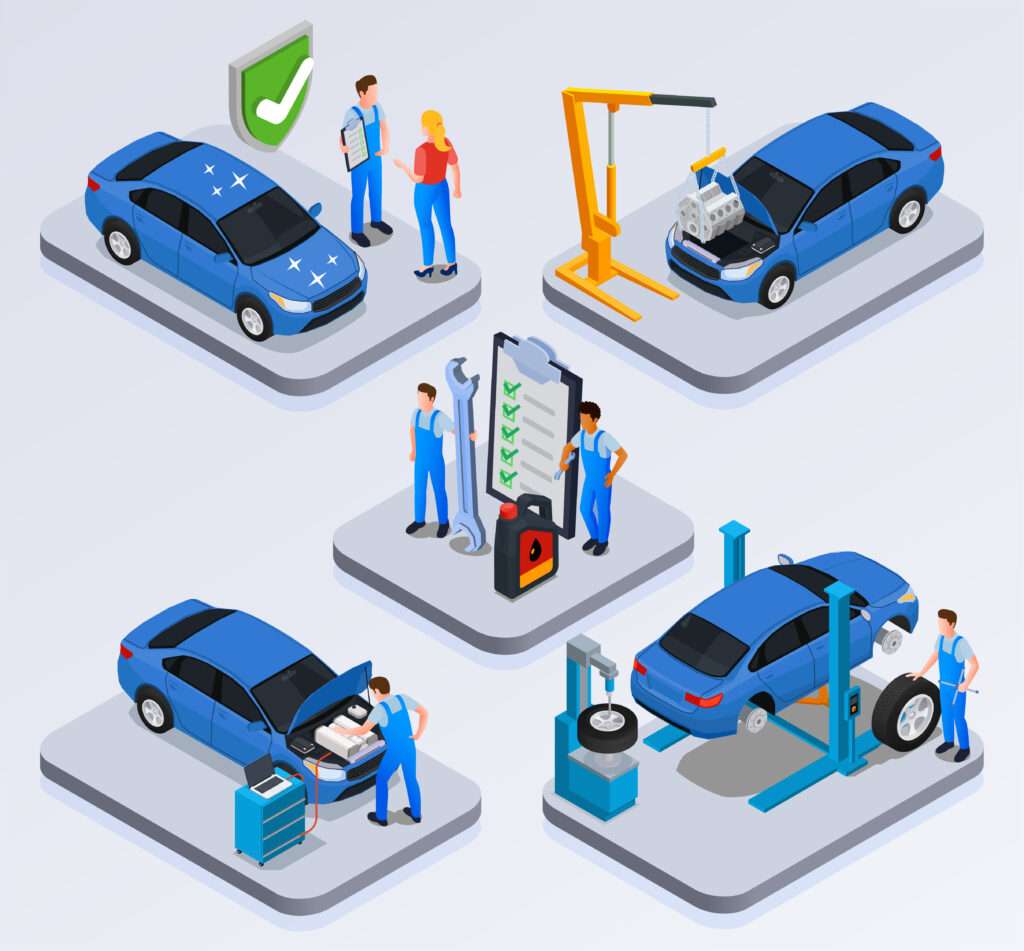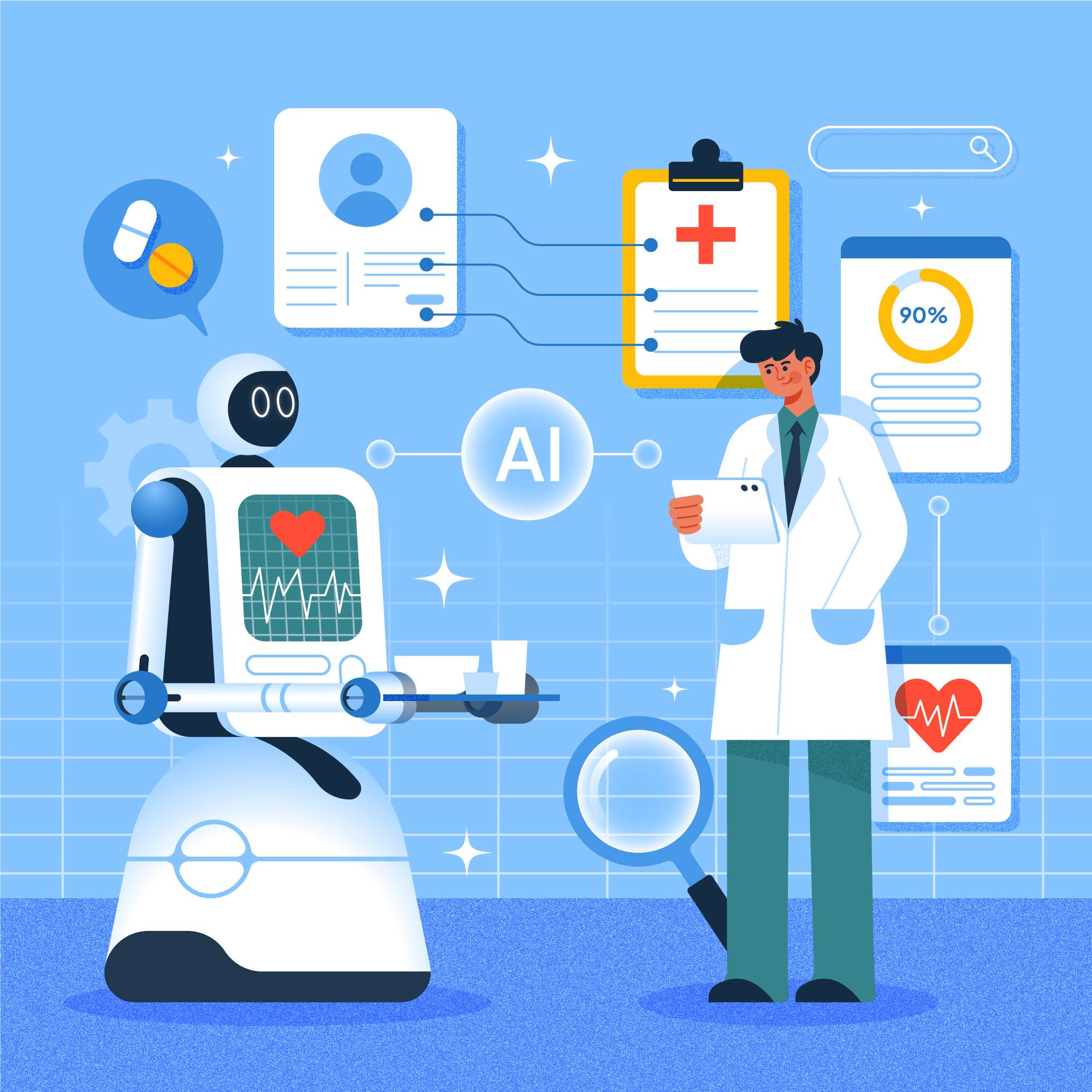Autonomous vehicles (AVs) represent one of the most demanding arenas for artificial intelligence, powering sensing, decision-making and control in real time. These vehicles constantly ingest massive volumes of sensor data (LiDAR, radar, cameras, IMUs), using AI to interpret environments, predict hazards and execute safe maneuvers. According to sources, the use of AI in automotive market was valued at USD 4.8 billion in 2024 and is projected to reach USD 186.4 billion by 2034.
Automakers and mobility-tech firms are increasingly leaning on advanced AI frameworks both to simulate behavior under edge-case conditions and to orchestrate massive data throughput efficiently. In this blog, we will look into the role of AI in autonomous vehicle testing and data management and how it shapes the future with smarter, more scalable architectures.
AI-Powered Testing for Safer Vehicles

Validating autonomous-vehicle software requires exposing systems to countless possible driving scenarios, from routine lane changes to once-in-a-million edge cases. Traditional road and track testing alone can’t uncover every failure mode. This is where AI dramatically expands testing coverage and accelerates validation.
AI-driven analytics tools continuously scan system logs and multi-sensor inputs to detect anomalies in milliseconds. This is a task that would take human engineers far longer. Machine-learning models can also generate thousands of realistic traffic scenarios, like rain-soaked lanes, heavy fog, a pedestrian emerging from a blind spot and more. This helps in stress-testing perception and planning algorithms.
Instead of relying solely on manually crafted tests, AI brings powerful pattern-recognition capabilities to simulations, surfacing faults buried deep in complex parameter spaces.
Key Ways In Which AI Enhances AV Testing
- Faster Fault Detection: ML classifiers monitor controller outputs and sensor streams in real time, instantly flagging irregularities. This leads to significantly higher fault-detection rates, with subtle glitches surfaced early in development.
- Large-scale Scenario Generation: Generative models automatically create diverse, physically accurate driving scenes, including rare hazards engineers might not anticipate, ensuring much broader scenario coverage.
- Adaptive Test Sequencing: Reinforcement-learning (RL) agents learn which scenario combinations are most likely to expose system weaknesses. RL dynamically prioritizes high-value tests, continuously refining strategies with overnight optimization.
- Auto-Annotation: Deep-learning techniques, including vision transformers, label synthetic camera and LiDAR data without human intervention, reducing costly manual annotation and speeding up perception-stack validation.
Together, these capabilities elevate traditional hardware-in-the-loop (HIL) and software-in-the-loop (SIL) workflows. AI enables engineers to rapidly sweep through massive parameter spaces, compressing validation timelines while boosting statistical confidence before road deployment. Instead of triaging huge datasets manually, teams can run AI-driven test cycles overnight and return to actionable insights by morning.
Smart Data Management for AV Development

Testing tells you how an autonomous vehicle performs, but data fuels how it improves. Every AV functions like a mobile data center, continuously streaming 1–5 TB of raw sensor data per hour. Managing these massive volumes means not just capturing information, but transforming it into structured, traceable insights that engineers can rely on for rapid iteration.
AI-driven data pipelines now automate much of this complexity across the entire lifecycle:
Real-Time Data Ingestion
High-performance platforms transfer video, LiDAR, radar and GPS feeds from the vehicle edge to centralized storage with ultra-low latency. Sub-millisecond data movement ensures that safety alerts, model updates and validation systems always use the most current information.
Metadata Tagging & Orchestration
As soon as sensor data arrives, AI enriches it with critical metadata making it fully searchable and ML-ready. This includes timestamps, geolocation, weather conditions and sensor type.
Intelligent software then triggers workflows: new data might automatically retrain a driving model, flag an anomaly for review or replay a scenario in a simulator. This event-driven workflow converts raw logs into actionable insights with minimal manual intervention.
Automated Labeling
Deep-learning models, including advanced vision transformers, label objects in camera frames and LiDAR point clouds. Automated annotation dramatically reduces human effort while accelerating development of perception, classification and sensor-fusion systems, especially in rare or complex scenarios.
Secure Storage & Compliance
Modern data backbones support end-to-end governance with tools like immutable object locking, audit trails and version-controlled datasets. These capabilities help meet ISO 26262, GDPR and OEM cybersecurity requirements. This architecture boosts GPU utilization and cut analytics time from weeks to hours, enabling real-time optimization across the fleet.
Agentic AI and Emerging Trends

A major frontier in autonomous-vehicle development is the rise of agentic AI. These are intelligent systems capable of planning tasks, making decisions and adapting to new conditions with minimal human instruction. Unlike conventional AI models that simply execute predefined scripts, agentic AI can establish its own sub-goals and take initiative to achieve broader objectives.
In the context of AV testing, this represents a powerful shift. Instead of engineers manually designing every scenario, AI agents could autonomously run virtual driving sessions, learn from each outcome and refine their testing strategy over time.
Imagine a setup where one agent generates diverse, physics-accurate traffic scenes while other controls a simulated vehicle navigating through them. Using reinforcement learning, these agents collaborate and expand scenario coverage. They help in discovering edge cases that no human tester might think to script.
In practice, this might look like an AI “test driver” that starts with a basic set of routes but then chooses new, more challenging paths as it identifies system weaknesses. Over many iterations, the agent becomes a more sophisticated explorer of failure modes.
Looking ahead, multi-agent systems could take this even further. Specialized agents, one for sensor emulation, one for perception benchmarking, another for performance analytics, could coordinate to validate the entire vehicle stack. The result is self-optimizing test orchestration that dramatically accelerates validation cycles.
Impact Across Industries

AI-driven testing and data platforms are transforming how the entire AV ecosystem develops, validates and deploys autonomous systems. Key stakeholders benefit in distinct but connected ways:
OEMs and Tier-1 Supplier
- High-performance AI infrastructures have enabled major suppliers to reduce training cycles from 72 hours to under 24.
- Automated data workflows lead to faster model retraining, simplified infrastructure operations and lower total cost of ownership.
- Stronger traceability and compliance help accelerate certification for safety-critical functions.
Startups and Mobility Innovators
- Cloud-based simulations and scalable AI resources allow smaller teams to validate features without large, expensive test fleets.
- Rapid iteration empowers startups to compete with established players, leveling the innovation playing field.
Academic Research and R&D Labs
- Universities leverage open-source simulators, reinforcement learning and perception toolkits to design new edge-case scenarios.
- AI frameworks help researchers explore breakthrough ideas in safety, planning algorithms, sensor fusion and human-machine interaction.
Strategic Advantage for Industry Leaders
- Analysts highlight that competitive edge in autonomy will depend less on whose software is fastest and more on who can learn and adapt quickest.
- AI-driven testing uncovers rare faults early, while intelligent data pipelines ensure no critical insight goes unused.
How Technoforte Can Help
With deep expertise in enterprise IT transformation across manufacturing, automotive and logistics, Technoforte is well-positioned to help AV-focused organisations build and scale the infrastructure required for high-volume data pipelines and AI-driven testing workflows. We can implement robust ingest frameworks, automate metadata tagging and ensure end-to-end infrastructure performance and compliance for your AV programme.
In simulation-based validation and AI model training, Technoforte’s analytics and software-engineering capabilities enable rapid scenario generation, automated annotation and data orchestration. Our experience across complex domains means we can integrate generative model pipelines, reinforcement-learning testing frameworks and scalable storage/compute infrastructure into your AV development lifecycle. As a result, your team benefits from faster model retraining, better test-coverage and reduced turnaround time from data capture to actionable insight.
Conclusion
AI has become the backbone of autonomous-vehicle advancement, not just powering perception and control, but transforming how these systems are validated, improved and deployed. With smarter automation and more agile development loops, AV teams can iterate rapidly while maintaining the rigor required for safety-critical systems.
Ultimately, the winners in the autonomy race will be those who use AI not only within the vehicle, but across the entire development lifecycle. By adopting these technologies now, automakers and innovators can deliver self-driving vehicles that are safer, more reliable and ready for real-world complexity — sooner than ever before.
If you’re looking to scale your autonomous-vehicle programs with confidence, Technoforte is ready to help. Contact us today to see how we can help your business.
Email: sanjay@technoforte.co.in, shalini.shukla@technoforte.co.in
Phone Number: 9341257187, 7975552867





